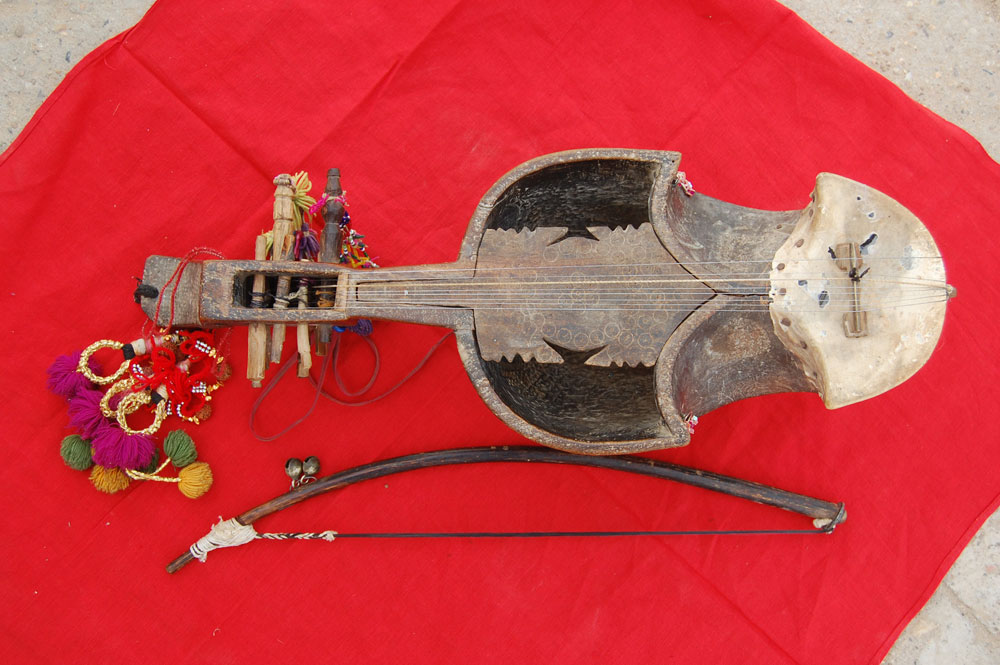Marudhar Lok Kala Kendra
Grant Period: Over two months
What constitutes and reinvigorates creativity as a community practice? How is it related not only to enhancing incomes and opening market opportunities but equally to notions of well being, dignity and happiness? What needs to be done to integrate the voices of the rural creators in constituting decentralised and self-sustaining cultural industries that are not subservient to the logic of elite perspectives and markets but sensitive to perspectives of self-realisation rooted in local tradition and community? These questions apply acutely to the musician communities of Rajasthan, that have been paraded endlessly by the ‘tourism establishment’ as symbols of Rajasthani culture, or have found themselves performing at international venues with meagre material or qualitative gains. Inspite of the visibility that the musician communities enjoy in and outside Rajasthan, they have, over the years, witnessed a steady erosion of their patronage, their livelihood, and their relationship with their own art practice.
This grant supports a workshop-conference for the musicians of western Rajasthan, which will enable them to explore issues that impinge on their lives. By generating knowledge from below, this is expected to help integrate the voices of the musicians in the planning of initiatives that are intended to advance their interests. The consultation will examine two domains: one, the material existence and dignity of the communities and, second, the changes in their musical practice, their repertoire and instruments. The aim is to create a space for folk musician communities to articulate their concerns, observations and insights; list their observations and understand from their perspective the factors that have brought about the changes in their music and its practice; and identify methods to bridge the gap between the folk artists and their listeners. The findings of the conference will be put together as a document, which will be circulated among government departments and NGOs.
The workshop sessions have been divided according to three broad areas of concern. The first session will look at the material concerns of the communities by aligning it to the notion of their dignity as perceived by them in the past and what it seems to them now. The second session focuses on specific questions about what they have lost as musicians as reflected in their shrinking repertoire and musical instruments. The third session will explore possible strategic interventions that the artists think are needed to address questions raised in the previous sessions. Manganiar, Langa, Meghwal, Dhaadi, Bhil and Jogi are the musician communities of this region. About 70 musicians from these communities will be invited to this meeting. They will then break into smaller groups, each supported by one resource person. The role of the resource persons will primarily be to listen, document and collate the findings of the workshop-conference. These people will comprise of a mix of folklorists, academicians and activists––Vijay Verma, retired executive director of the Jawahar Kala Kendra; Suman Yadav, Assistant Professor, University of Rajasthan, Jaipur; Rahul Ghai; Sudhir Rakhecha; and Bhuvnesh Jain. The grantee, Marudhar Lok Kala Kendra, is a small organisation managed by the musicians themselves and has established a good rapport with the musician communities in the region. The workshop will be held in May 2008 in Barmer.




